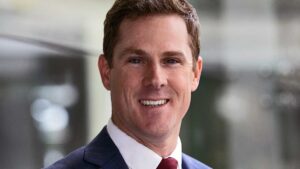‘Act of faith’ central to active management decision
An enduring question is whether one can identify a fund manager that can deliver outperformance relative to the index. Even before ETFs become the alternative, numerous studies have either proven or disproven the case for active management, with no real resolution. That said, the consistent after-fee underperformance of the median active manager is well known.
Simplistically, advisors that want to purely focus on asset allocation, minimise fees and style bias elect to populate portfolios with only ETFs. The middle ground hedges its bets in so-called “core ETFs” and aims for unique active strategies to round out the picture. An idiosyncratic handful only use active, looking for highly differentiated strategies, and are able to ignore the standard benchmarks.
Increasingly strategies of interest dumb down the notional index to cash, i.e, just achieving positive returns. It makes a degree of sense for market neutral, short duration credit, unlisted equity or credit. Yet one could make a case for real returns to be the benchmark, especially if there are performance fees.
But many will continue the search for “manager skill.” Indeed, it’s a nearly daily task as managers present their case for portfolio inclusion. A handful of advice groups do relatively sophisticated analysis, breaking-down performance to pure beta and other components. Even then the time frame, style bias and other factors can complicate the assessment.
Other dedicated organisations (such as the big super funds) have access to vast amounts of data to analyse funds from an array of perspectives. These focus on aspects such as identifying the turning point in performance, when there are process changes, or if it is a structural feature of the fund. For example, funds typically limit the weight of any stock, and often a sector.
To complicate matters, we are now entering a realm where a stock may be excluded due to a judgement of its governance or social impact. Tesla is one that has long been rated poorly on governance; Facebook has hardly covered itself in glory in its role in social wellness. Carbon footprint reporting is becoming the likely biggest hurdle.
Too frequently, most look most closely at short-term performance, such as one-year outperformance; or, even if they look at the long-term data, ignore the influence of small periods of abrupt under- or out-performance that distorts the data. If looking at say five-year outperformance, many ignore the frequency of one year causing an outsized impact on the five-year outperformance — the remainder can be lower than the index. After sharp downturns fund managers can take time to reset their positions, yet often the performance in those months are exceptional, leaving the data trailing for a longer time.
Active management selection is an act of faith ideally brought about by an appropriate level of scrutiny. Out-performance does not validate the process but may just explain the conditions that suited that process. What would advice look like with no (or at least cursory) regard for index benchmarks? Could they focus only on the outcome toward which the client is aiming, and recognise their particular requirements, be they income, capital growth, volatility or sustainable investing? It does not take away from assessing fund managers within their realm, yet acknowledges the structural problems of indices.











